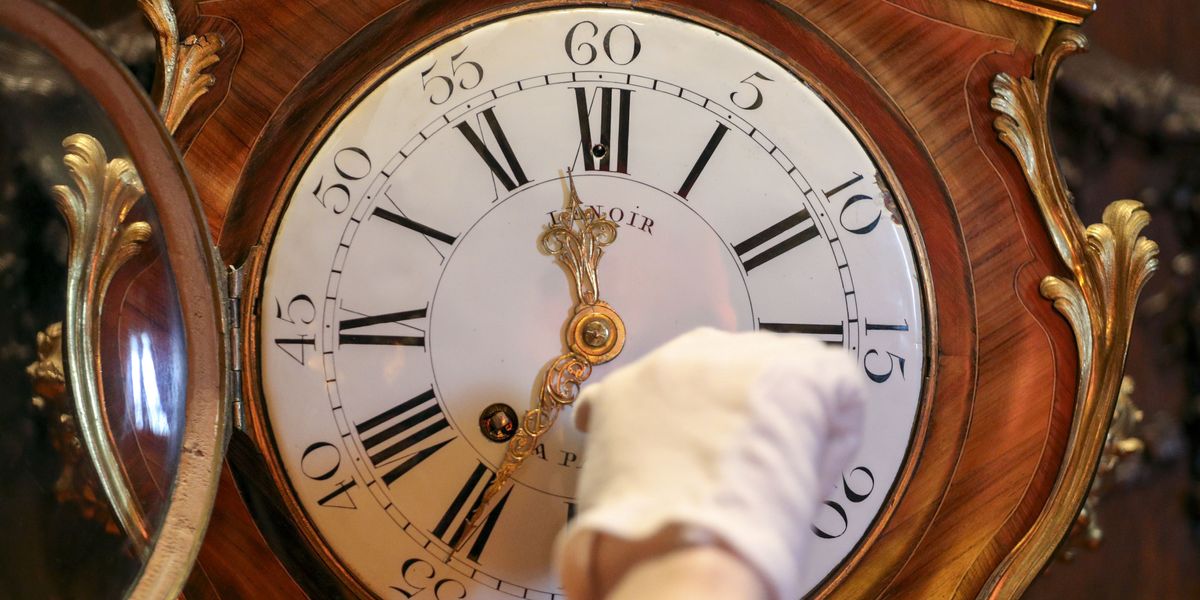The Clock Change: Embracing the Shift to Winter Time
As the days grow shorter and the nights stretch longer, many Britons find themselves in a familiar seasonal rhythm. The transition from British Summer Time (BST) to Greenwich Mean Time (GMT) is not just a matter of adjusting the clocks; it signifies a shift in lifestyle, mood, and even our perception of time itself. This year, the clocks will go back one hour on Sunday, October 27, marking the end of longer evenings and the onset of winter’s embrace.
The Ritual of Time Change
The practice of changing the clocks is deeply ingrained in British culture. Every year, on the last Sunday in March, the clocks spring forward by one hour, ushering in British Summer Time. Conversely, on the last Sunday in October, they fall back, returning to GMT. This biannual ritual is designed to make the most of daylight, allowing for longer evenings during the warmer months and maximizing daylight during the shorter winter days.
A government spokesperson succinctly explained the rationale behind this practice: “The period when the clocks are one hour ahead is called British Summer Time. There’s more daylight in the evenings and less in the mornings. When the clocks go back, the UK is on Greenwich Mean Time.” This system aims to enhance productivity and leisure time, but it also brings with it a host of psychological and social implications.
Anticipation and Anxiety: The Mixed Emotions of Winter
As the clock change approaches, reactions among the public can be mixed. While some eagerly anticipate the extra hour of sleep that comes with the shift back to GMT, others dread the impending winter gloom. The shorter days and cooler weather can lead to feelings of melancholy and seasonal affective disorder (SAD) for some individuals.
However, for many, the clock change is a welcome opportunity to embrace the cozy comforts of winter—think warm blankets, hot drinks, and evenings spent indoors. The transition also signals the approach of festive celebrations, which can lift spirits and foster a sense of community.
The Psychological Impact of Time Change
Recent research is delving into the psychological effects of the clock change, particularly how it influences our perception of time and overall wellbeing. Professor Ruth Ogden from Liverpool John Moores University is leading a study aimed at understanding the impact of this seasonal shift. She poses intriguing questions about how the disruption of our internal clock affects our daily lives: “Do you feel like you’ve got more or less time, and higher or lower levels of wellbeing?”
The study invites UK adults to participate in an online survey, exploring their experiences of time pressure and how the clock change may affect their sense of time. This research is particularly relevant in today’s fast-paced world, where time often feels like a scarce resource.
Time and Social Justice
The implications of time management extend beyond individual wellbeing; they touch on broader social issues as well. Sociology Professor Patricia Kingori from the University of Oxford’s Ethox Centre highlights the relationship between time and power. She notes that when external forces dictate our time, it can create injustices for marginalized groups. For instance, busy parents or those juggling multiple responsibilities may experience the clock change differently than those with more control over their schedules.
This perspective invites a deeper examination of how societal structures influence our relationship with time. As we adjust our clocks, it’s worth considering who benefits from these changes and who may be left behind.
Conclusion: Embracing the Change
As the clocks prepare to go back this weekend, Britons are reminded of the cyclical nature of time and the various ways it impacts our lives. Whether you’re looking forward to an extra hour of sleep or bracing for the winter chill, the clock change serves as a poignant reminder of the passage of time and its influence on our wellbeing.
In a world where time often feels like a commodity, understanding our relationship with it can lead to greater awareness and perhaps even a more fulfilling experience of life. So, as you set your clocks back this Sunday, take a moment to reflect on how this change resonates with you and those around you. Embrace the season, and let the longer nights inspire a new rhythm in your life.
